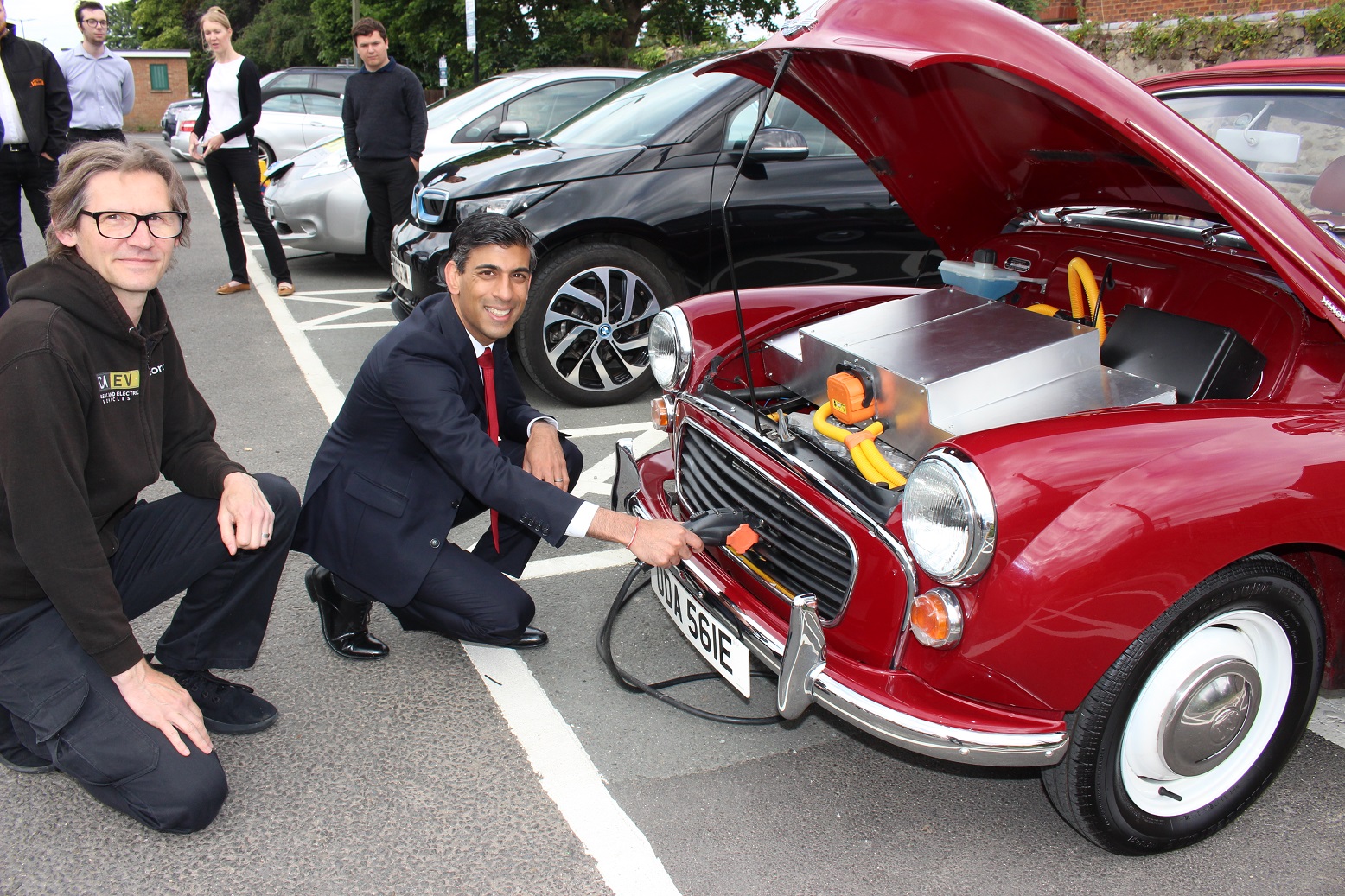He has only been Prime Minister of the United Kingdom for a short time, but Rishi Sunak will already have to take on several unresolved issues regarding the automotive industry and electric mobility.
On the one hand, the first «crisis» with the industry is due to the drop in production, which is falling again.
Car manufacturers called on the new prime minister and his government to improve the UK business environment.
The Society of Motor Manufacturers and Traders included the plea in its monthly report on production, which fell six per cent in September to 63,125 vehicles, about half of what companies were producing before the pandemic.
Mike Hawes, the trade group’s chief executive, called on Sunak to have a steady hand for the sector struggling with debilitating energy costs and supply chain disruptions.
«Stability, combined with a plan that addresses critical skills shortages, provides regulatory certainty and reduces long-term energy costs, can help put the UK at the forefront of next-generation automotive manufacturing«, Hawes said in the statement.
The UK automotive industry has struggled post-Brexit and has struggled to transition to electric vehicles.
BMW confirmed this month that it will stop making electric mini hatchbacks in Britain, opting instead to manufacture the model in China.
Startup Britishvolt, which the government pledged to fund earlier this year, is running out of cash and has discussed a possible sale of its main factory.
Last week, electric vehicle startup Arrival said it will pull out of plans to build its vans in the UK, dealing another blow to Britain’s ambition to transition its manufacturing base to battery power.
The second conflict Sunik will have to resolve is the end of the combustion engine. The EU has set 2035 as the deadline for its manufacture, but the UK is still considering options.
«My ten-point plan will create, support and protect hundreds of thousands of green jobs, while moving towards net zero by 2050,» commented Boris Johnson at the time he was Prime Minister.
Stressing that he had not lost sight of his «ambitious plans to raise standards across the country», Johnson unveiled investments in electric vehicles, hydrogen, wind and nuclear power, and measures to make homes more energy efficient.
Some 12 billion pounds (15.9 billion dollars, 13.4 billion euros) was budgeted in the plan and he promised it would create or support 250,000 jobs.
Probably the most radical policy announced by Johnson was to ban the sale of cars with internal combustion engines from 2030.
In a statement, Greenpeace UK director Rebecca Newsom described the policy as «a milestone» and said the end of polluting cars and vans was «a historic turning point» in tackling climate change.
Now, both bags must be carried by Rishi Sunak, who will have to work out what to do. The prime minister’s position is not yet clear.
Although he has tried in the past to ease the transition of drivers to electric vehicles under state subsidies, this week he said he would not attend COP27, but now he has had to backtrack after the controversy.




















